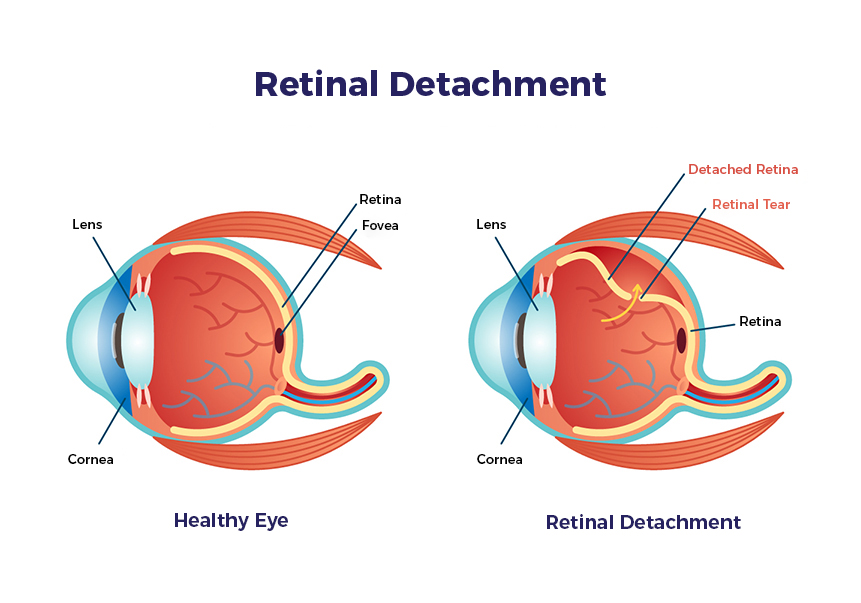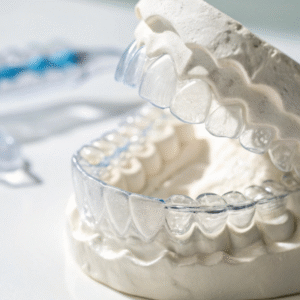Your eyes are one of the most important parts of your body. They help you experience the world around you, connect with people, and enjoy life’s beauty. But when you start noticing changes in your vision — like blurriness, dark spots, or trouble seeing clearly — it can be worrying. Many people don’t realize that these symptoms can sometimes be linked to problems in the retina, the thin layer at the back of your eye that senses light. That’s when you need expert help from a retina specialist dubai.

Finding the right retina specialist may seem confusing at first, especially with so many options available. However, with the right information and a clear plan, you can make a confident decision for your eye health. This guide will help you understand what a retina specialist does, what conditions they treat, and how to choose the best one in Dubai for your vision needs.
What Is the Retina and Why Is It Important?
The retina is a thin, delicate tissue that lines the back of your eye. Its job is to receive light and send visual signals to your brain through the optic nerve. This process allows you to see images, colors, and motion.
When the retina becomes damaged, it can lead to serious vision problems — and sometimes even permanent vision loss if not treated in time. That’s why regular eye checkups and early detection are essential.
- Some common signs of retinal problems include:
- Blurred or distorted vision
- Difficulty reading or seeing fine details
- Sudden flashes of light or floaters (small spots in your vision)
- A dark or empty area in your field of view
- Trouble seeing at night
If you notice any of these symptoms, you should see a retina specialist as soon as possible. Early diagnosis and treatment can prevent further damage and save your sight.
Who Is a Retina Specialist?
A retina specialist is an ophthalmologist (eye doctor) who has received additional training in diagnosing and treating diseases that affect the retina and vitreous (the clear gel inside the eye).
Retina specialists handle both medical and surgical eye problems. They use advanced imaging and treatment technologies to manage complex eye conditions that general ophthalmologists may not treat.
Their expertise includes the use of:
- Retinal imaging tests (like OCT scans and fluorescein angiography)
- Laser therapy to seal leaking blood vessels or repair tears
- Intravitreal injections to treat retinal diseases
- Retinal surgery for conditions such as detachment or macular holes
Common Retinal Conditions Treated by Specialists
Understanding the conditions that affect the retina can help you know when to seek professional care. Here are some of the most common retinal problems treated by specialists in Dubai:
1. Diabetic Retinopathy
People with diabetes are at high risk of developing this condition. High blood sugar levels can damage the small blood vessels in the retina, leading to swelling, bleeding, or abnormal vessel growth. If untreated, diabetic retinopathy can cause severe vision loss. Regular eye exams and timely treatment can protect your sight.
2. Retinal Detachment
This is a serious condition where the retina separates from the back of the eye. It often starts with sudden flashes, floaters, or a dark curtain over part of your vision. Retinal detachment is an emergency and needs immediate surgery to prevent blindness.
3. Macular Degeneration
Age-related macular degeneration (AMD) affects the central part of the retina, known as the macula. This area is responsible for sharp, detailed vision. AMD can make reading, driving, and recognizing faces difficult. Though there’s no complete cure, early treatment can slow its progression.
4. Macular Hole and Epiretinal Membrane
These are conditions that cause the macula to thin, wrinkle, or form small holes. They can lead to blurred and distorted vision. Surgical treatment may help restore sight in many cases.
5. Retinal Vein Occlusion
This happens when a vein in the retina becomes blocked, causing swelling and bleeding. It can occur due to high blood pressure, diabetes, or glaucoma. Injections or laser therapy can help reduce damage and restore vision.
Why You Should See a Retina Specialist in Dubai
Dubai is known for its advanced healthcare infrastructure and access to world-class medical professionals. Retina specialists in Dubai use the latest diagnostic tools and minimally invasive surgical techniques to deliver safe and effective treatment.
Here are some reasons to choose a retina specialist in Dubai:
- Advanced diagnostic equipment for accurate evaluation
- State-of-the-art surgical facilities for complex retinal procedures
- Multidisciplinary care, often in collaboration with diabetologists or neurologists
- Access to cutting-edge treatments and ongoing clinical research
- Personalized care plans tailored to your specific eye condition
- How to Find the Right Retina Specialist in Dubai
Choosing the best retina specialist for your needs involves more than just searching online. It requires attention to experience, patient care quality, and available facilities. Here’s how you can find the right expert for your eye health:
1. Check Qualifications and Experience
Look for an ophthalmologist who specializes in retinal diseases and surgeries. Verify their medical qualifications, fellowship training, and years of experience. Specialists who have handled many retinal cases are often more skilled at managing complex situations.
2. Research the Clinic or Hospital
A well-equipped eye center can make a big difference in your treatment experience. Check if the clinic offers advanced imaging tests like Optical Coherence Tomography (OCT) or fundus photography. It’s also important that they have surgical facilities if your condition requires an operation.
3. Read Patient Reviews
Patient experiences often give you insight into the doctor’s approach and communication style. Look for reviews mentioning things like professionalism, empathy, and clarity in explaining procedures.
4. Consider Communication and Comfort
The best retina specialists take time to listen to your concerns and explain your condition in simple terms. You should feel comfortable discussing your symptoms and asking questions about the treatment.
5. Ask About Available Treatments
Different retinal conditions require different treatments. Make sure your specialist offers a wide range of options such as:
- Anti-VEGF injections for diabetic retinopathy or macular degeneration
- Laser treatments for retinal tears or bleeding
- Vitrectomy surgery for retinal detachment or macular hole
6. Verify Insurance and Accessibility
Check if the clinic accepts your insurance plan and whether the location is convenient for follow-up visits. Retinal treatments often require regular monitoring, so accessibility matters.
When to Visit a Retina Specialist
It’s best to schedule an appointment with a retina specialist if you experience:
- Sudden vision loss or blurred areas
- New floaters or flashes of light
- Distorted central vision
- Difficulty reading or recognizing faces
- Vision changes in one or both eyes
Even if you don’t have symptoms, people with diabetes, high blood pressure, or a family history of retinal disease should get regular retinal exams. Early detection is the best way to protect your vision.
The Importance of Early Diagnosis
Many retinal diseases progress silently in the early stages. By the time vision loss becomes noticeable, the damage might already be advanced. Regular eye exams using retinal imaging can help detect small changes before they become serious.
Early diagnosis offers several benefits:
- Prevents irreversible vision loss
- Allows for simpler and less invasive treatment
- Reduces the risk of complications
- Improves the success rate of surgical procedures
Modern Retinal Treatments in Dubai
Retina specialists in Dubai use advanced technologies to ensure precise and effective treatment. Some of the most modern approaches include:
Optical Coherence Tomography (OCT): This imaging tool provides detailed cross-sectional images of the retina for accurate diagnosis.
Laser Photocoagulation: Used to seal leaking blood vessels or repair retinal tears.
Anti-VEGF Injections: Medications injected into the eye to prevent abnormal blood vessel growth in diseases like AMD or diabetic retinopathy.
Vitrectomy Surgery: A delicate surgical procedure that removes the vitreous gel to treat retinal detachment, bleeding, or macular holes.
These treatments are performed under sterile, controlled environments by experienced specialists, ensuring safety and comfort for every patient.
Caring for Your Retina After Treatment
After your retinal treatment or surgery, proper care is essential for a successful recovery. Here are a few steps to follow:
- Avoid rubbing or pressing your eye.
- Use prescribed eye drops regularly.
- Follow all instructions about posture or head positioning after surgery.
- Attend all follow-up appointments.
- Manage underlying conditions like diabetes or hypertension.
- Eat a healthy diet rich in leafy greens, omega-3 fatty acids, and vitamins.
Your retina specialist will provide you with detailed aftercare instructions to support healing and preserve your vision.
Conclusion
Your eyes deserve the best care, especially when it comes to retinal health. Finding the right retina specialist in Dubai can make a life-changing difference in protecting your sight. By understanding your symptoms, researching qualified specialists, and seeking timely treatment, you can ensure long-term eye health and clarity.
If you’re looking for expert guidance, Dr. Mandeep Lamba offers specialized care in diagnosing and managing retinal conditions with advanced technology and personalized treatment plans. Protect your vision today — because early action can save your sight for the future.




